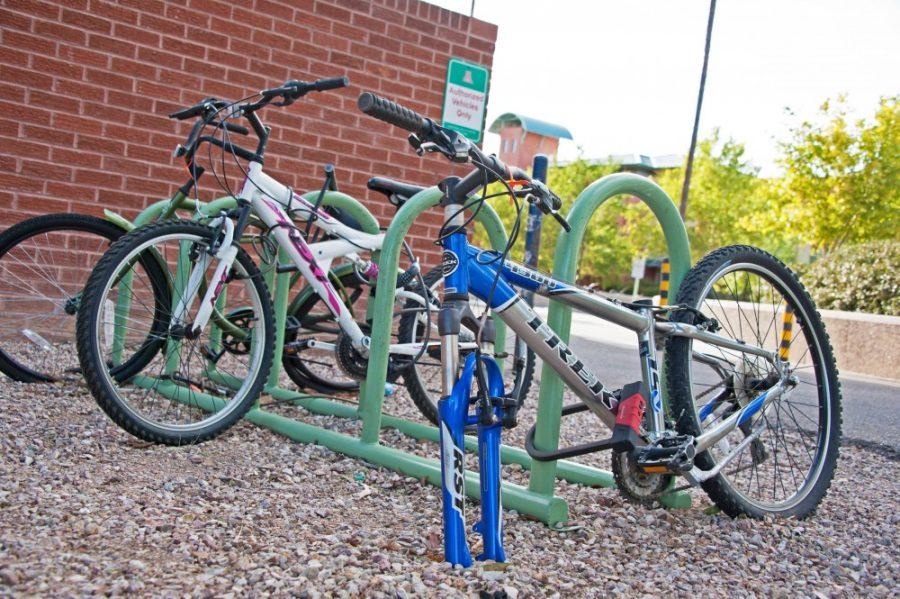They see you rollin’, they’re not hatin’, the Arizona Legislature want to see you riding dirty.
On June 26, the Arizona Legislature passed H.B. 2439, allowing guns onto university campuses. Students with concealed weapons permits can now store their firearm in the vehicle when parked on campus.
The UA Faculty Senate issued a resolution in response to the actions of the state legislature and subsequent Arizona Board of Regents policy revision.
It states: “”The Faculty Senate of the University of Arizona would like to express its grave concern for not only the safety of faculty, but our students and staff with the revisions to Arizona Board of Regents Policies 5-303 (Prohibited Conduct) and 5-308 (Student Code of Conduct) to allow guns on campus in locked vehicles or in locked containers on motorcycles.””
Supporters of this bill claim that it will cut down on the number of massacres on college campuses, but they fail to provide any real logic to back up that statement. In the case of a campus emergency, college students shouldn’t be running to their cars in an attempt to play out some hero fantasy. The last thing needed in an emergency are more people with guns creating confusion for real police officers. In a campus shooting, how are police officers supposed to discern who is the real gunman?
Police are trained to react quickly and decisively. Hesitating during a campus shooting can lead to increased killing of innocent people. The University of Arizona Police Department cannot be expected to react in due time if they cannot identify the true criminal because gun-wielding students get in their way. Firearms may be a somewhat legitimate form of personal protection in one’s home, but they do not imbue the wielder with the task or ability of protecting the university as a whole.
Sen. John Huppenthal, R-Chandler, said “”There’s a large number of rapes of coeds as they leave campus and they go to their home,”” without citing any actual statistics. Campus security at night is always a concern, but there are many stages between defenseless and carrying a firearm. Students can purchase any number of defensive mechanisms, including pepper spray, expandable nightsticks or a taser. All weapons can be misused, but these devices provide non-lethal security without the risk of accidentally killing someone.
Allowing students to pack heat in their ride is not a solution, it will only enflame situations and lessen safety.
Of the deluge of e-mails sent by President Robert Shelton, there was not a single one about the change of this crucial policy. It’s hard to believe that the administration considers swine flu to be more dangerous than firearms on campus.
At Wednesday’s ASUA senate meeting, this issue received much less attention than the situation demands, despite the fact that ASUA President Chris Nagata stressed the importance of a student response to this legislation.
The discussion started as Sen. Tyler Quillin suggested the senate issue its own resolution. Two minutes later, the discussion was over. Only two other senators participated, both advocating for more research and student input before going any further.
As representatives of the student population, ASUA must represent the needs and preferences of the students at the UA. The need to wait for more input, especially students’ views, is applicable to the formation of a resolution, but not a discussion.
As the UA is a state agency, the university must adhere to state laws. However, H.B. 2439 was passed nearly three months ago, so ASUA has had ample time to plan a way of informing students about this bill in order to receive feedback. Despite this window of opportunity, there has been little or no publicity regarding this bill, leaving most students completely uninformed.
When asked about their personal views, Sens. Sarah Bratt and Hilary Davidson expressed reservations about the efficacy of allowing guns on campus. “”Our primary concern is for the safety of the students and how this bill affects that,”” Davidson said.
Aside from the safety concerns, senators questioned the motivation for this bill’s expedient passage. Sen. Katherine Weingartner wondered “”why the Legislature dedicated time to allow guns on campus when there is a budget crisis.”” However, they did not raise these concerns because they don’t want their personal opinions to drive senate action. ASUA senators must remember that they are students too.
Engaging in meaningful discussion will allow the senate to hash out the practical advantages and disadvantages of this bill. Their discussion will not determine the resolution, but it will allow them to canvas the university in order to more efficiently and accurately represent the concerns of the students.
The UA administration and student government have not taken the initiative to inform students and gauge their collective sentiments. One would hope that Shelton and the administration deem this issue important enough for another mass e-mail. As the discussion in the ASUA senate continues, there needs to be serious debate amongst the senators as they advocate for legitimate student concerns. Student leaders must first find their own voices if they are to represent student opinions on campus gun control.
— Dan Sotelo is a political science senior. He can be reached at letters@wildcat.arizona.edu.








